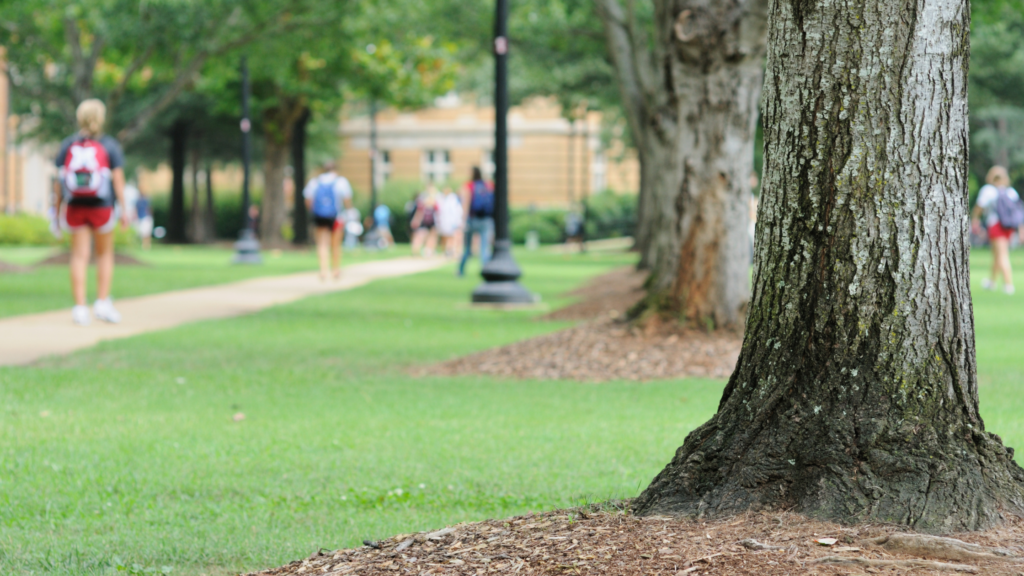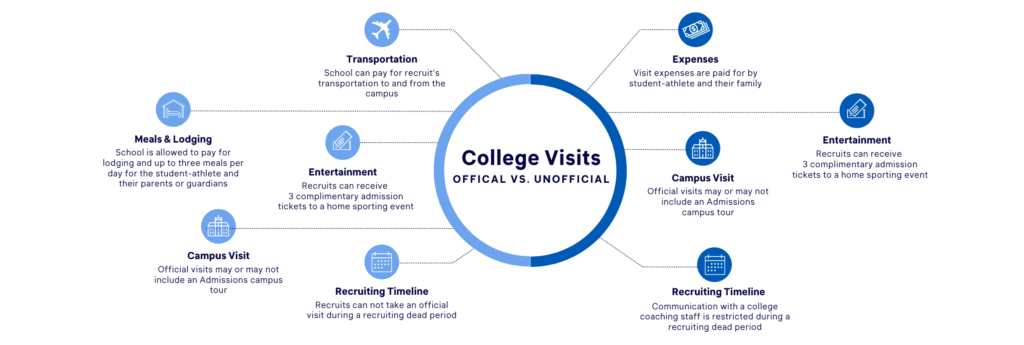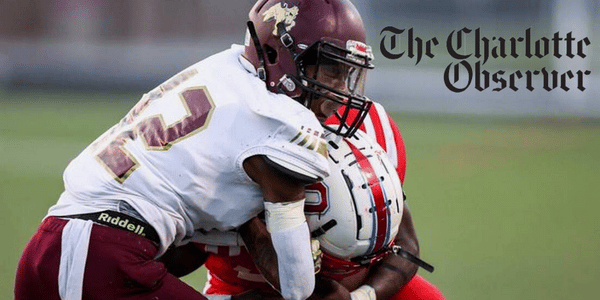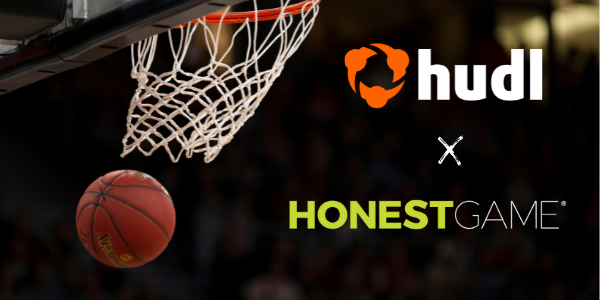How to Ace Your College Visit – Mastering the Official and Unofficial Visit
Published on Jun 9, 2024

For prospective college athletes, choosing a college can be similar to buying a car… you first begin with a list of options, do research to narrow down the list, and visit in person to find the best fit.
For student-athletes looking to play college sports at an NCAA school, completing virtual campus tours and visiting campuses close to home can help narrow down the list of colleges before deciding on which campuses to put on your visit list.
The NCAA allows high school student-athletes to meet with the coaches and teams on campus, but there are limitations. In some cases, college coaches will pay for your transportation to the campus, as well as accommodations for an overnight stay (known as an official recruiting visit), while other times your family pays (unofficial visit).
The timing of allowable unofficial and official visits varies based on the sport played, your year in high school, whether the school is NCAA Division I (DI) or Division II (DII), and the specific time period for your sport’s recruiting calendar. The recruiting calendar generally allows unofficial visits to occur earlier than official visits.
Failure to follow the rules could result in a violation of the coach (and you!) receiving penalties, and it is important for recruits to familiarize themselves with the NCAA’s sport and division-specific recruiting calendars.
Whether you are a high school female basketball player (who is eligible to take an unofficial visit the moment you enter the 9th grade) or a high school male baseball player (who must wait until September of your junior year to visit a college campus) — you want to be ready.
Let’s plan ahead and get you ready for your visit long before you pack your bags and jump in the car. Buckle up!
The first thing we need to do is set expectations. Most college programs have small recruiting budgets and may not be able to pay for official visits, cutting-edge athletic facilities, or expensive recruit photo shoots. You must look past the superficial expectations and consider the most important factors when choosing a college: academic fit, campus fit, and athletic fit.
What is the Difference Between Official and Unofficial Visits?
What is an Official Visit?
Any visit to a college campus by a college-bound student-athlete or their parents that is paid for by the school. Before taking an official visit, a recruit must provide the college with their high school transcript and complete registration for a Certification Account with the NCAA Eligibility Center.
Beginning July 1st, 2023, student-athletes looking to compete at an NCAA Division I school are now allowed to take an unlimited number of official visits to NCAA institutions. It’s important to note that each school allows only one official visit per student-athlete, unless there’s a change in head coach after their first visit, allowing them to go on a second official visit. However, in the case of men’s basketball, a second visit is only permissible if it falls in a different academic year.
Additionally, all prospective DI and DII recruits must be placed on each school’s Institutional Request List (IRL) in order to take their official campus visit, receive an athletic scholarship, or sign a National Letter of Intent (NLI).
What is an Unofficial Visit?
College campus visit paid for by student-athletes or their parents is considered an unofficial visit and an unlimited number of unofficial visits are allowed regardless of division level or sport.

Let’s dive deeper into the visit details…
Unofficial visits can be initiated by a prospective student-athlete, as well as the college coaching staff who can suggest dates and times to visit the campus – taking into account the NCAA rules regarding quiet and dead periods. Taking an unofficial visit is best when a college coach is able to meet with you on campus and high school student-athletes are allowed to take as many unofficial visits as they wish.
Official visits are typically more structured and coaches may have a list of dates reserved for official recruit visits. Scheduling and expenses (including travel, meals, and lodging) for official visits are always arranged by the college coaches. During your visit, you will either stay with your family at a hotel or in a dorm with a student-athlete host while your family stays in a hotel.
Official visits may not last longer than a two-night stay.
Honest Insight: If allowed, choose visit dates that overlap weekdays with weekends. Weekday visits typically allow you to attend a class and give you the chance to see how student-athletes balance their weekday routine of class, practice, study hall, and strength workouts – while also allowing you to experience the campus on a weekend.
Regardless of the visit type you choose to take, it is important to plan ahead and give yourself (and the college coach) ample time to create the best college visit. Take into consideration that the team may be traveling during your (unofficial) visit, or the coach may only have a small window of time to meet with you. Having an organized plan for visits and communicating clearly will help in the recruiting process.
Now that you understand the difference between official and unofficial visits, let’s start planning your trip!
What to Know Before Your College Visit
As you narrow down the list of potential schools, you should research each school using free online resources, such as virtual campus tours and online tuition calculators. You don’t want to waste invaluable time during your visit seeking answers that you can find online. Make sure to research the following questions in advance of your visit:
- Research the athletic department – what conference do they compete in? Are their other sports programs successful?
- Research the team – do they compete nationally or regionally? Where are the players from? What are the team members majoring in? How long has the coach been there and do they have a contract with an expiration date?
- Research the school – have they cut sports recently? Are they adding sports?
Your campus visit should serve to strengthen your interest in the school and provide you with a sense of campus life. It will also give an insight into the team atmosphere and what it is like to be a student-athlete at that school.
Before your visit, you should think through the conversations you might have at the school to how to prepare for your visits and show your best self when talking with a school’s coaching staff.
You should also prioritize and plan out your visits by listening to each response from a coach during your pre-visit conversations. Do they have a recruiting timeline in mind? Are they hoping you will commit during your visit or shortly after? How many scholarships are available? Do they only have one scholarship, but are having multiple recruits visit the campus? All of these are things that you should pay attention to. Waiting too long to schedule a visit or delaying your final decision after you’ve visited the campus can result in missed opportunities.
Whether you’re traveling to campus during an unofficial or official visit, you should request an itinerary and ask if you’d like something to be added. If you want to do undergraduate research while in college, ask to see a lab. If you are curious about the surrounding community, ask for meal options off-campus. If you have specific physical, learning, or social/emotional needs, ask to meet with professionals on campus while you are there. These are all items that are difficult to schedule once you’re on campus, but if you request them ahead of time, a school should be able to accommodate your needs.
Some sports have recruiting cultures where students will verbally commit after an unofficial visit, long before they are able to schedule an official visit or sign a National Letter of Intent.
Honest Insight: Make sure you are 100% confident in your school choice! The more research you’ve done before your visit, the more prepared you’ll be to decide.
What to Pack for Your College Visit
With an itinerary in hand, you’ll be able to plan what you will need to pack for your recruiting visit. Comfortable walking shoes are key as you will likely be walking the campus for hours and you want to be comfortable. Are you joining the coaches at a nice restaurant? Pack restaurant-appropriate clothes. Are you meeting with the Athletic Director or Dean of Admissions? Make sure to pack business casual clothes for a professional impression. Will you be invited to train with the team? Add athletic training clothes and shoes to your bag.
What to Expect During Your College Visit
You’re on campus! Now is the time to open your eyes and ears to take it all in! Remember, you are recruiting the coaches and college just as much as they are recruiting you. Can you see yourself on campus? Are you ready for the climate? Is it close enough to home or a nearby airport or train station? While you are checking all of these things out, the Athletic Department and coaching staff will also be evaluating if you will provide value to their campus/program. Conduct yourself in a way that would make your family and high school coaches proud.
Your official visit should ALWAYS include one-on-one time with the coaching staff where the coaches should be honest about their commitment to you. Are you expected to make a decision by a certain date? Is an athletic scholarship offer on the table? Would a scholarship be a dollar amount or will it be a percentage of your total bill?
During your visit, make sure to speak about your academic needs and make sure you meet with an Academic Advisor to further understand the expectations for the student-athletes at the school.
Academic preparedness carries a lot of weight in the recruiting process – the academic advisor’s professional opinion of your academic ability could weigh heavily in a coach’s recruiting decision. Even if you only have a short time with the academic advisor, make it count! It’s important for the academic advisor to see how you answer questions and speak about your own academic needs and goals.
Honest Insight: The best recruiting visit, from an academic advisor’s perspective, is one in which the parent or coach allows the student and advisor to get to know each other. This time is crucial in two ways – first, the academic advisor must learn how to best support the student-athlete, and second, this is a crucial time for the student-athlete to learn about the academic expectations of that school. Is study hall mandatory? Do they check attendance at class and what are the repercussions for missing class? Will tutoring be required or is it optional, or even offered at all?
Be sure to have your Honest Game CARE® (College Athletic Report on Eligibility) or a high school transcript on hand during your visit. Having a plan will show that you are aware of what you will need to complete in your final semesters of high school and that you take your academic eligibility seriously.
While you’re busy picturing yourself as a student-athlete on the team, remember you will also be a member of the campus community one day. What would it be like if you couldn’t play sports? Eat in the cafeteria, stay in the dorms (or at least visit the dorms if the official visit has you staying in a hotel near campus), and look for events happening on campus to get a good understanding of campus life.
You also want to observe coach/player interactions.
If you are lucky enough to stay longer than a morning or afternoon, you’ll get a good sense of how the team interacts with each other, and how they feel about their coaching staff. These moments with the “host” athletes will help solidify your awareness of the culture and can often be one of the most important factors when deciding on schools. It is important to consider how the team interacts with each other, their coaches and with professors.
Wondering what you should ask current players during your visit? To get you started, here are a few sample questions to ask your host or players on the team:
- What does a typical day look like?
- How do you manage balancing classes with practice?
- How do professors react when you have to miss class due to traveling or games?
- Do the athletes do workouts together during the offseason?
- Are you close with other athletic teams? Are there opportunities to meet other athletes?
- Do you live with teammates, with athletes in other sports, or is it randomly selected?
- What is your favorite thing about the school?
- If you could do it all over again, would you choose this university?
- Any advice for me?
Coaches try to incorporate social activities into a recruiting visit, away from the athletic department and sports facilities, to give you a chance to get to know the team, and for them to get to know you. Remember, you only have one chance to make a first impression, and making good choices while on your recruiting visit is a wise decision. Follow the rules set forth by the NCAA and hold yourself accountable to team and campus rules. One bad choice on a recruiting visit could cost you your collegiate athletic opportunities – not only at the school but at other schools. Coaches and players talk, and news can travel quickly.
What to Do After Your College Visit
Once you leave campus and are able to sit back and reflect, make a pros and cons list while it’s fresh in your mind. Did you like the team? What if you couldn’t play sports anymore – would you want to stay at the school? Did the coaching staff talk about you using a redshirt year and how did that make you feel?
What you need to remember is a visit is just that, a visit. It’s a moment in time when you get to experience all that the team and school want to show you. However, that may not be the case every day for the next four years. Think about life on campus outside of the recruiting dinner with coaches – that won’t be an everyday occurrence once you’re a member of the team. Maybe you visited on a warm summer day but winter in the region is typically snowy and very cold. Think about life on campus the other 363 days of the year.
Choosing a college may be a family decision for you. Have open and honest conversations with those in your support circle to help you make your college decision. If you are used to your family being at every game, will you be upset if you are going to a college far from home? Do you have the financial ability to fly home or take the train during breaks if your sport allows, or will you remain on campus? Are others on the team in the same situation? Do they go to teammates’ homes for holidays?
Honest Insight: One of the most important steps you can take after your visit is to thank the coaching staff with an email or a handwritten note, as they took time out of their schedule and possibly money out of their budget to host your visit.
If you have decided to cross the school off your list of possibilities, make sure to tell the coaching staff as soon as possible. They most certainly have other recruits waiting on your decision and telling them your plans early is the right thing to do.
Once you have committed to a school, you should email and/or call the programs that have scheduled future visits letting them know you’ve made your decision.
Do not have your family or high school coach do this for you. These are hard conversations but it’s always best to be upfront and open about your plan. You never want to burn bridges on the recruiting trail… one day you may decide to transfer to one of the schools you previously visited.
Have more questions about the recruiting visit process? Honest Game Counselors are available to provide one-on-one assistance to support student-athletes in navigating post-secondary opportunities athletically and academically. Schedule a time to meet virtually with our experts.

As a former Senior Associate Athletic Director at the NCAA Division I level and with more than 20 years of experience in collegiate athletics, Courtney has advised thousands of student-athletes through the college recruiting and eligibility process for college sports. Interested in virtual counseling with Courtney? Sign up here.



